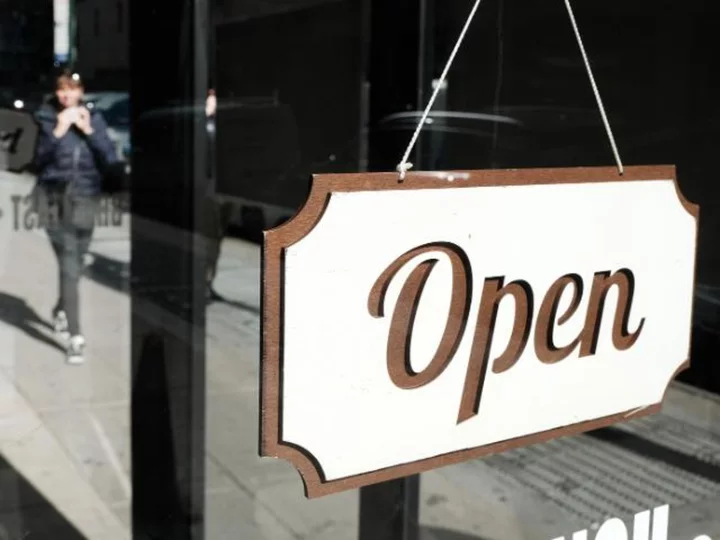A greater number of small businesses are worried about inflation and future business conditions, according to a survey released Tuesday by the National Federation of Independent Business.
If even more business owners become concerned about inflation in the coming months, then that might be a problem for the Federal Reserve — which is trying to tamp down inflation still running well above the central bank's 2% target, even though price increases have slowed in the past year.
The Fed keeps a close eye on inflation expectations to know whether or not US consumers have become used to a certain level of inflation. If they have become used to a higher level of inflation, it could be extremely hard to bring down, eroding Americans' living standards. Officials look at a wide range of sentiment surveys to make the determination such as another recent survey that showed that consumers' near-term inflation expectations fell in May to their lowest level in two years.
"Overall, small business owners are expressing concerns for future business conditions," Bill Dunkelberg, NFIB's chief economist, said in a release. "Supply chain disruptions and labor shortages will continue to limit the ability of many small firms to meet the demand for their products and services, while less severe than last year's experience."
The survey showed that overall small business optimism improved in May, though it remained below its historical average for the 17th month in a row. The share of small business owners expecting better business conditions in the future declined in May while the share reporting that inflation "was their single most important problem in operating their business" increased.
Inflation has slowed from its 40-year peak a year ago to 4.9% in the 12 months ended in April. The Bureau of Labor Statistics releases its Consumer Price Index for May later Tuesday. The Fed's preferred inflation gauge has similarly shown that inflation has cooled in the past several months, though its reading for April showed a surprise uptick.
The Fed has raised interest rates 10 times since it began lifting rates in March 2022, and it's succeeded in bringing down inflation so far without throwing the labor market off a cliff.
Employers have still been hiring, and the NFIB's May survey showed that 44% of owners "reported job openings that were hard to fill, down one point from April and remaining historically very high."
Other surveys have shown the same thing.
"A textile manufacturer was struggling to hire the 'next generation' of workers to replace retiring workers, as the average age of new hires is in the fifties," said the Fed's most recent Beige Book, which is a compilation of survey responses from businesses around the country.
The NFIB's May survey likely won't raise any eyebrows at the Federal Open Market Committee, which is the Fed group that sets monetary policy. Officials are confident that inflation expectations remain in check. The Fed announces its next interest rate move on Wednesday.
"Despite elevated inflation, longer-term inflation expectations appear to remain well anchored, as reflected in a broad range of surveys of households, businesses, and forecasters, as well as measures from financial markets," Fed Chair Jerome Powell said in a news conference after officials voted to raise the benchmark lending rate by a quarter point last month.

